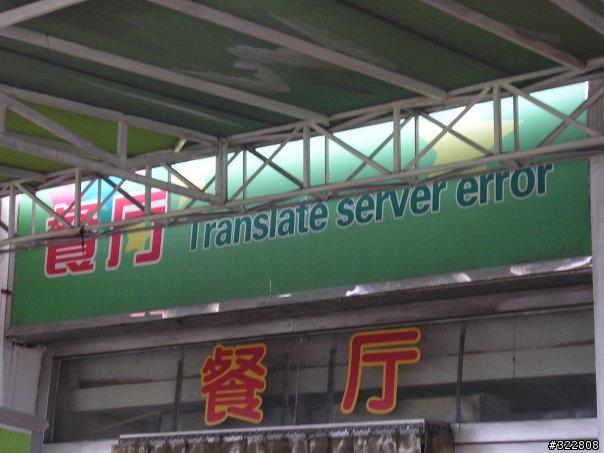Translation Faux Pas
 In Translating words from one language to another can be a very tricky thing and translation errors are common across the world. Even if you are proficient in a foreign language, specialized or technical language will often require professional translations.
In Translating words from one language to another can be a very tricky thing and translation errors are common across the world. Even if you are proficient in a foreign language, specialized or technical language will often require professional translations.
In some cases,it is obvious what those making errors were trying to say (even if JFK had told the German people he was a plump and juicy jelly doughnut - see picture - as a persistent myth suggests, it would have been very obvious as to what he really meant) whilst others simply boggle the mind (such as a sign above a restaurant in Thailand declaring that their “food is guaranteed not to cause pregnancy”).
The fact that saying you are a Berliner (or a Frankfurter or Hamburger for that matter) may mean very different things depending on the context, highlights just how troublesome a minefield translation can be.
Whilst such lingual faux pas are amusing in certain contexts, many of the culprits no doubt wish they had visited translation experts such as thebigword rather than relying on free online tools.
Fortunately for all of us, some of the more extreme translation gaffes are simply hilarious and, rather than landing people in serious trouble, have simply given us something to brighten our days.
Translate Server Error
It is probably not uncommon for individuals to find the words ‘Translate Server Error’ staring back at them when online translations go wrong, although few would think that this is the direct translation of the words they fed in.
 Yet this is exactly what one Chinese restaurant owner assumed, creating a huge sign to hang above his restaurant entrance declaring that ‘Translate Server Error’ was the name of his business.
Yet this is exactly what one Chinese restaurant owner assumed, creating a huge sign to hang above his restaurant entrance declaring that ‘Translate Server Error’ was the name of his business.
If translating the name into English was a plan to attract more interest, we would say the restaurant very much succeeded.
What’s that smell?
One of the most common areas for a translation to fail is on a menu, some of them are simple spelling mistakes or written out of context, but few are quite so off-putting as the one which declared that a restaurant’s rice smelled of wee.
We are not quite sure what they meant to say, but we are hoping that ‘Hele soup smell of urine’ wasn’t the exact translation they were going for. If it was, they get top marks for honesty at least.
Sweet Dreams
Not all confusing translations are outright hilarious. Some are also kind of sweet. In one Chinese town, a sign asking individuals to keep off the grass had its meaning lost in translation in a very wonderful way: “Do not disturb. Tiny grass is dreaming.”
The baffling demand is most likely the result of back translating from English to Chinese to English since the Chinese translation above also makes no sense. However, who needs sense when you have something so whimsically delicious to enjoy?
Boots of Ascension
It isn’t just those in the East who have trouble translating words. Even right here in Europe where English is a much more common tongue, and our culture is not so alien, the same language issues can raise their funny little heads.
In one Austrian hotel, skiers were asked “not to perambulate the corridors in the hours of repose in the boots of ascension”. Whilst it starts off well, if unnecessarily grandiose, it is unlikely that many people in a ski resort will have a special wardrobe of shoes to ascend to a prominent position. Nor is it likely that Jesus will be popping in to say hi.
Getting what you asked for
Either the following translation lost its true meaning en route, or there is a hotel manager in Athens who is very much a masochist.
The sign declaring that “visitors are expected to complain at the office between the hours of 9 and 11 am daily” will not be very comforting to new guests and is either a poorly translated phrase or a master class in honesty and resignation.
Obviously though, these are worst case scenarios to translation that can lead to funny if not serious repercussions. This is where professional translation really is a requirement for businesses and individuals alike. In today’s world of instant communication, ever shrinking business borders and online reputation management, professional translations can be the difference between being seen as credible and trustworthy or, the complete opposite.
Author Bio: This article was provided by Gino De Blasio from thebigword. Thebigword is a global, technology-enabled language solution provider that delivers translation and interpreting services.
Disclosure: Gamesforlanguage has no business relationship with thebigword or Gino De Blasio, other than having published Gino's post.
